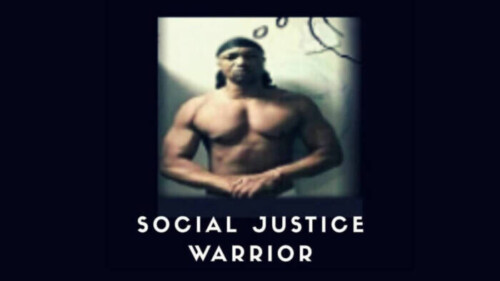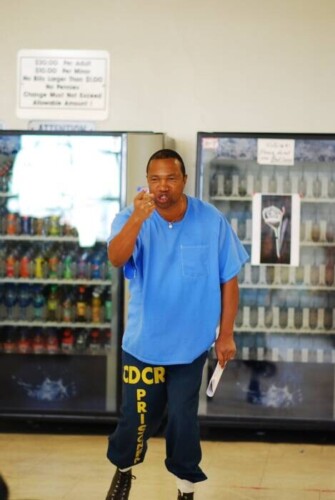Â
#Juneteenth2023: As we celebrate the cause for freedom, remember the King of Prison Hip Hop, a symbol of resilience & reform. His art shines in dark corners.
As we mark Juneteenth 2023, we’re reminded of the timeless struggle for freedom and equality. Our history has recorded countless stories of individuals who have fought against societal limitations and systemic oppression. The King of Prison Hip Hop, however, stands as a unique symbol of resilience and reform, his art serving as a beacon of hope in the darkest corners of the American penal system.
Born as a life sentence convict, The King of Prison Hip Hop – whose true identity Donald “C-Note†Hooker, the world’s most prolific prison artist – had no claim to a throne. His empire was the cold steel and concrete of the correctional facility. His subjects, other inmates seeking solace in art. Yet, from the depths of his confinement, he rose to be the defining voice of a marginalized community, giving us an unprecedented perspective of life behind bars.
C-Note’s rise to prominence as the King of Prison Hip Hop is a testament to the indomitable spirit of the human soul. It’s a story of a man who, against all odds, harnessed the power of rhythm and rhyme to articulate the anguish, desperation, and simmering hope within prison walls. His gritty, raw, and unfiltered lyrics, fueled by the rhythms of life in the correctional system, created a new subgenre within the Hip Hop industry – Prison Hip Hop.
These lyrics depict the harsh realities of incarceration and the glaring flaws in our justice system. However, the King’s music, poetry, spoken word, drawings, writings, and plays, are not just a mirror reflecting the broken state of American correctional facilities. It also serves as a rallying cry for reform, for an end to systemic racism, and for a future where justice is truly blind.
His art has managed to permeate the formidable walls of the prison, gaining traction outside the correctional system. From college campuses to mainstream platforms, the King’s unconventional sound and profound message are forcing society to listen to the unheard stories of thousands of incarcerated individuals. His influence has been instrumental in shedding light on the punitive practices of the penal system, sparking conversations around the urgent need for prison reform.
The celebration of Juneteenth in 2023 gives us a unique opportunity to reflect on the King’s journey and what it signifies for the broader African American community. Juneteenth commemorates the abolition of slavery in Texas and more generally the emancipation of enslaved African Americans throughout the former Confederate States of America. Yet, even as we celebrate this milestone, we must confront the bitter truth that different forms of systemic oppression persist to this day.
The King of Prison Hip Hop stands at the intersection of these systemic issues – a modern-day griot, recounting tales of bondage and liberation through his art. His art forces us to confront the uncomfortable truth that our work towards racial equality is far from over. Just as Juneteenth recognizes both the end of a bitter chapter in history and the beginning of a struggle for true equality, the King’s art encapsulates the dichotomy of despair and hope.
The celebration of Juneteenth in 2023 is, in many ways, a reflection of the King’s philosophy. His voice – resonating from the confinement of a prison cell – serves as a stark reminder of our society’s continuous struggle against racial inequality and systemic oppression. Yet, at the same time, it provides a glimmer of hope. It represents the potential for reform and the enduring spirit of individuals fighting against a system that has repeatedly failed them.
The King of Prison Hip Hop’s impact reaches beyond the barbed wires of prison yards and permeates the social consciousness of his listeners. His work is a continuous rallying cry for social justice, reminding us that the struggle for equality is ongoing.
In 2015, his leadership, playwriting, and performance skills in the play Redemption in Our State of Blues would lead to the public-private funding of the nation’s first prison release program to provide free housing, free college, and actual paid theatrical work with The Strindberg Laboratory.
In 2016, his 2014 drawing Mprisond was exhibited at California’s first prison art exhibition to feature the co-works by male and female prisoners. Through the Wall: Prison Arts Collective, featured works by prisoners from three different California prisons: the California Institution for Men (CIM), the California State Prison, Los Angeles County (CSP-LAC), and the California Institution for Women (CIW).
The exhibition was held at the CB1-Gallery in Downtown, Los Angeles from May 14th to 29th, and was curated by the University of California at San Bernardino and its former UCSB art professor Annie Buckley.
C-Note became an award winning visual artist from his 2018 drawing Capitalizing on Justice. It was exhibited along with other prison artists at the Capitalizing on Justice exhibition at the Urban Justice Center in Manhattan, New York City. The exhibition was curated by the Corrections Accountability Project (CAP).
C-Note’s spoken word performance of his epic poem, THE CRIMINALIZATION OF OUR AMERICAN CIVILIZATION (This is not a Manifesto).
It is said of the King, “His art doesn’t live on walls, but in the streets,†as activists have used his art as a Public Service Announcement to evacuate prisons in the path of hurricanes.
His first-in-the-nation billboard art exhibition by a prisoner, featured his 2017 drawing Incarceration Nation. Incarceration Nation has become America’s premier work of art on mass incarceration. The exhibition in Silicon Valley was curated by Anna D. Smith of Anna D. Smith Fine Art and Real Estate Broker and it led to the “Better San Jose Peaceful Rally.â€
His work Today We Are Sisters has been recognized as playing a role in the State of California providing $7M in reparations to California women prisoners for being forcibly sterilized.
In essence, the King of Prison Hip Hop has become an emblem of hope and resilience. Like the legacy of Juneteenth.
“I call my work Hip Hop,†says C-Note. “Because in the early days of Rap, rappers were called news reporters. The American mainstream press did not cover the plight of the inner city, so our stories reached the public through Rap. Photojournalism can show you what it looks like to be locked up, but only the artist can tell you what it feels like to be locked up, and it’s Hell. What mainstream media outlet is reporting these stories?â€
© 2023, Tedfuel. All rights reserved.




